Smart Solutions and Committed Communities to Fight COVID-19: How the USAID ACCESS Program is Responding to the Pandemic in Madagascar
Smart Solutions and Committed Communities to Fight COVID-19: How the USAID ACCESS Program is Responding to the Pandemic in Madagascar
By: Tantely Raminosoa and Misa Rahantason
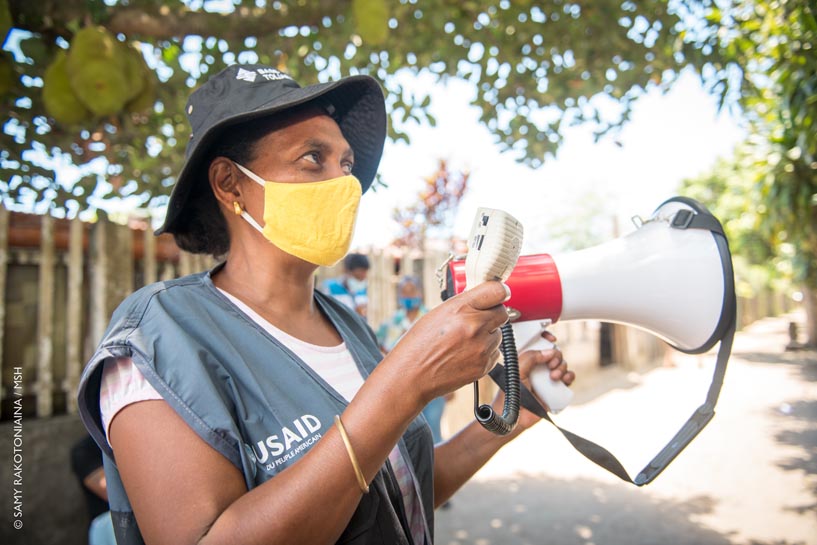
“As a public health program, we knew we would have so many challenges to face when COVID-19 hit Madagascar. But we were ready for this; we had successfully stopped multiple outbreaks in recent years—including pneumonic plague and measles. When the first cases were reported, we started to roll out strategic approaches to support both the government and communities to stop the spread of the virus, by any and all means.”
- Riana Samoelina Ramanantsoa, Deputy Director of the USAID-funded Accessible Continuum of Care and Essential Services Sustained (ACCESS) program
Madagascar reported its first cases of COVID-19 in March 2020. It was not long before the outbreak spread throughout multiple regions, including some of the country’s most remote communities. The Government of Madagascar quickly mobilized response activities to minimize the outbreak’s spread and impact on the population, including coordinating activities with the United States Agency for International Development’s (USAID) ACCESS program, led by Management Sciences for Health (MSH), and other partners and stakeholders.
Providing reliable information on COVID-19
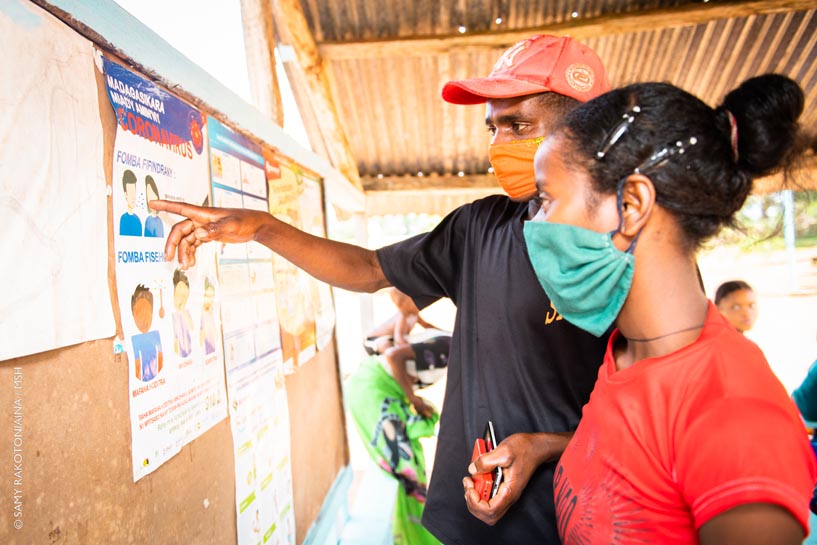
“Early on, rumors and misinformation about COVID-19 were spreading extremely fast. We knew that providing correct, reliable information was going to be a very important piece of the battle to reduce transmission and save lives.”
- Tovo Ranaivomino, Social and Behavior Change Director for ACCESS
To reach as many people as possible, a dynamic and responsive risk communications strategy uses posters, brochures, radio spots, and TV broadcasts to engage communities and raise awareness about the dangers of COVID-19 and how to stay safe.
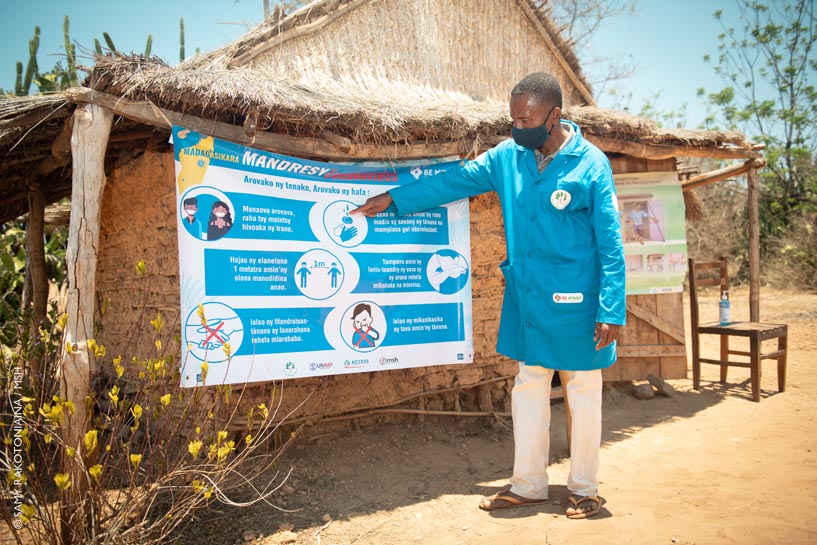
USAID ACCESS works with trusted community leaders to support this outreach, since local leaders are best able to effectively advocate for healthy behaviors, dispel rumors and false information, and convince their communities to adopt COVID-19 prevention measures.
Ensuring health workers have the tools they need
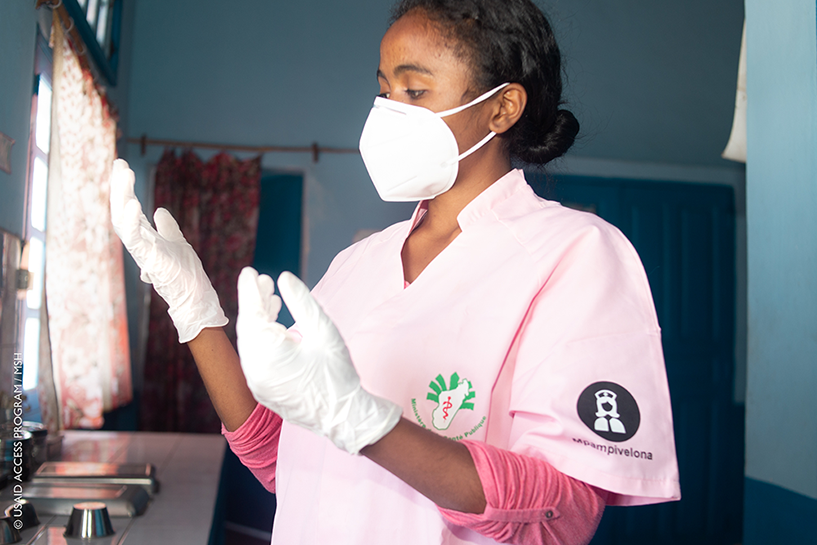
Through vital donations to support health workers and patients throughout the COVID-19 pandemic, including hand-washing devices and equipment for infection prevention and control at health facilities, USAID ACCESS helps communities adopt healthy behaviors like routine handwashing and promote safer and higher quality health care services.
Using smart technology solutions
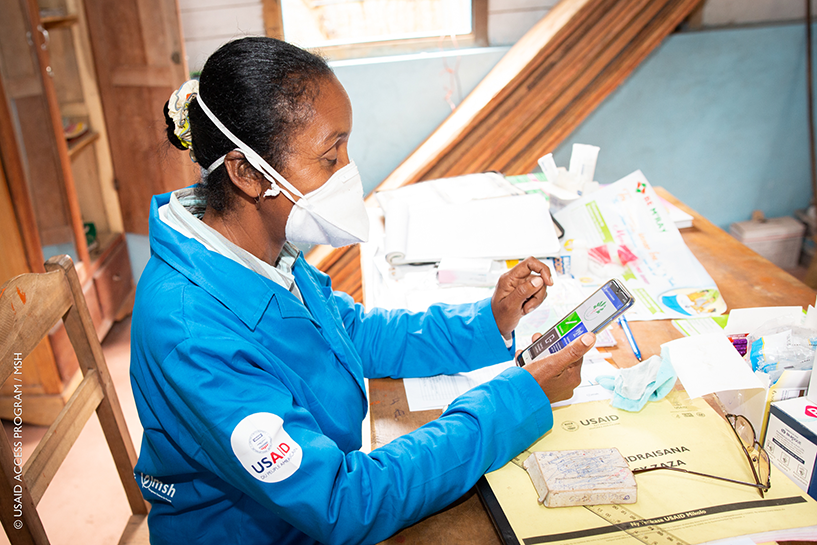
“Together with our local partners, we’ve helped the Government roll-out innovative efforts nationwide to monitor the spread of COVID-19, through electronic surveillance with modern tools, and equipment like smartphones and tablets, equipping public health professionals with the real-time data needed to effectively and decisively lead and coordinate activities on the ground.”
- John Yanulis, Program Director for USAID ACCESS
USAID ACCESS is scaling up the use of the CommCare mobile app on smartphones to improve service quality and health data reporting at the community level. This innovative app includes a COVID-19 module which health workers use to document suspected cases and provide an alert when further investigation is needed.
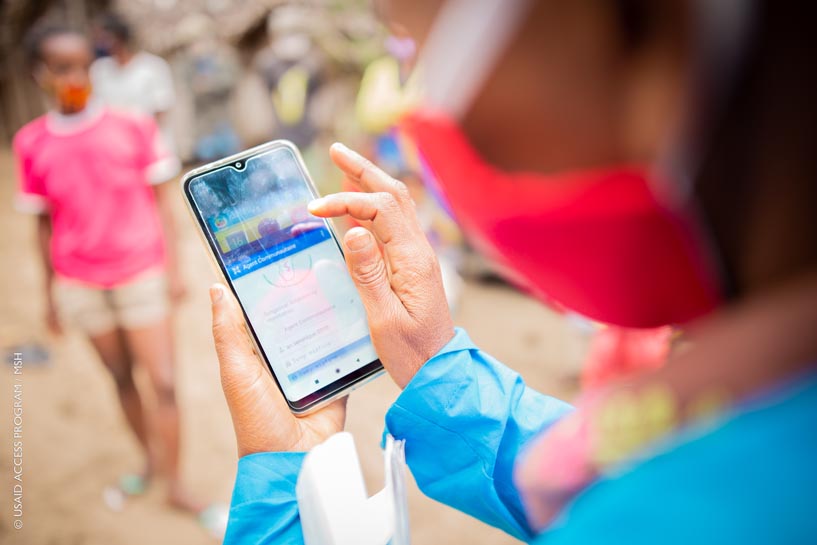
Community health volunteers use the app to conduct contact tracing and send automated text messages to alert the nearest health center when a patient is showing symptoms. The app also contains multimedia tools, such as photos and videos, that health workers use to educate people on COVID-19 prevention, transmission, and symptoms.
Sharing information nationally
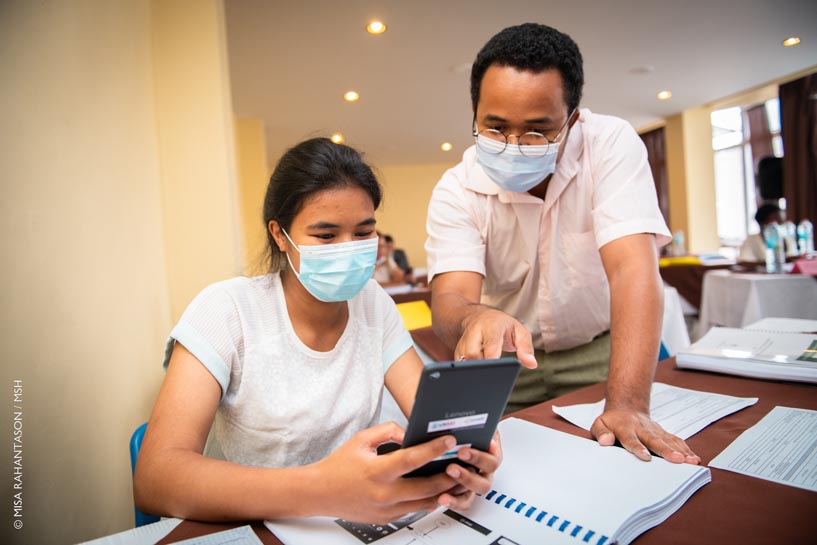
USAID ACCESS supported the development of a COVID-19 module on DHIS2, Madagascar’s open source, web-based health management information system.
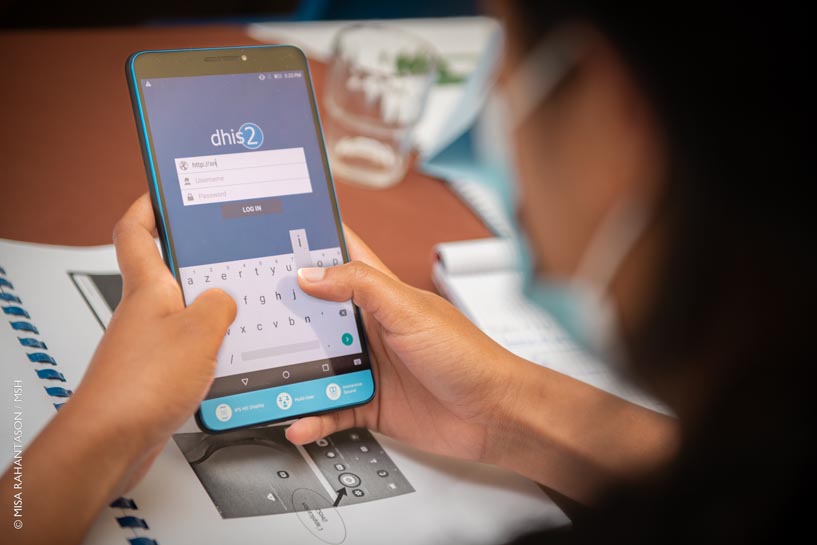
The module, along with updated reporting and surveillance tools, improves investigation and response activities at the community and district levels.
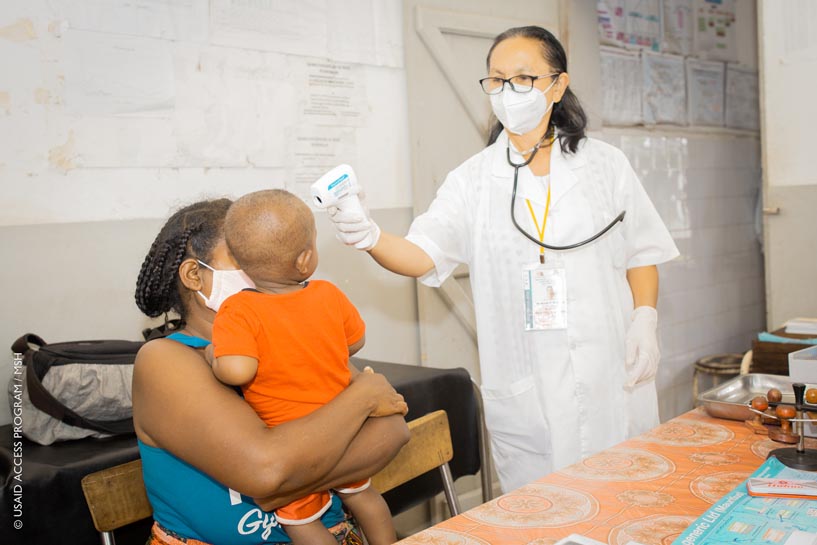
To support both community and government tracking of the disease, a technical guide developed with the MOPH and other partners sets the standard for disease surveillance and responses required at all levels of the health system.
“The technical guide and the electronic tools we are rolling out across the country will ensure we have the health data we need to detect and respond to situations before they become outbreaks.”
- Dr. Vololoniaina Christophère, MOPH’s Director of Health Surveillance and Epidemic Control and Response for Madagascar’s Ministry of Public Health
Maintaining essential health care services
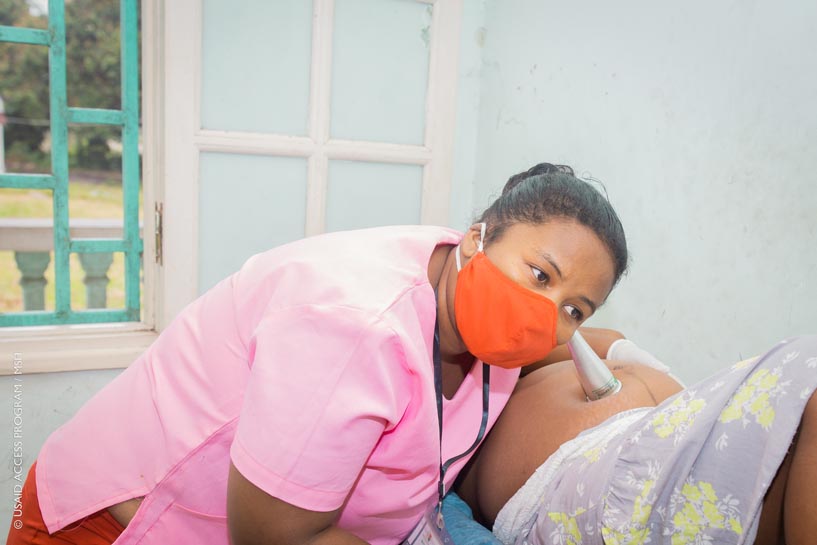
Despite the challenges from the pandemic, USAID ACCESS ensures essential health care services and supplies continue to be delivered to the communities in need. Community health volunteers and health care providers from both health centers and district hospitals continue to receive on-site and virtual training and mentorship, gaining the skills and information they need to safely and effectively care for their patients.
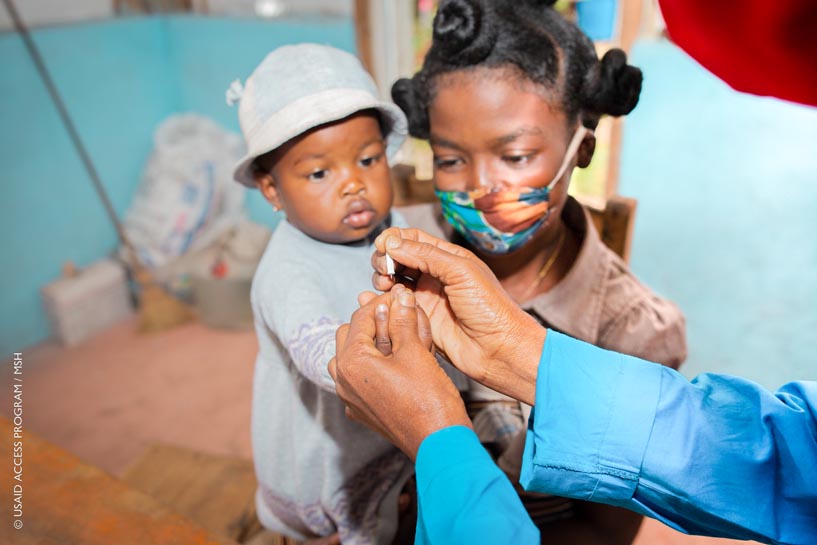
The vital services these health care providers deliver during the pandemic include family planning; antenatal care; skilled birth attendance; vaccinations; growth monitoring and promotion; and the treatment of childhood illnesses, such as malaria, diarrhea, and pneumonia.
Strengthening epidemic preparedness
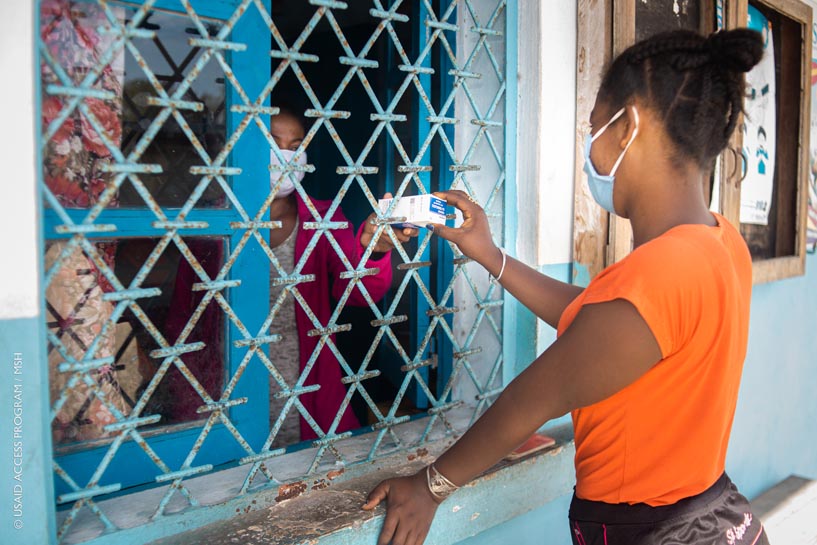
COVID-19 is not the first outbreak to occur in Madagascar. The country has experienced several disease outbreaks in the last five years, including pneumonic plague and measles. During this time, USAID ACCESS and its predecessor, the USAID Mikolo project, have been trusted partners to the Government of Madagascar, helping build a stronger, more resilient public health system that can better withstand these types of shocks.
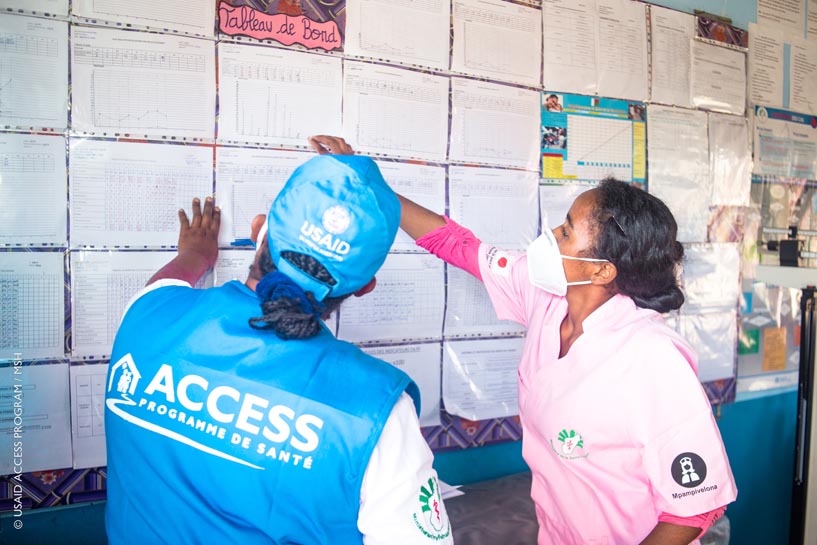
“We work with the Ministry of Public Health staff at all levels, so they are able to identify best practices and efficiently align all stakeholders and ensure an effective response to events such as pandemics.”
- Dr. Fanja Raelison, USAID ACCESS’s Director of Health Systems Strengthening
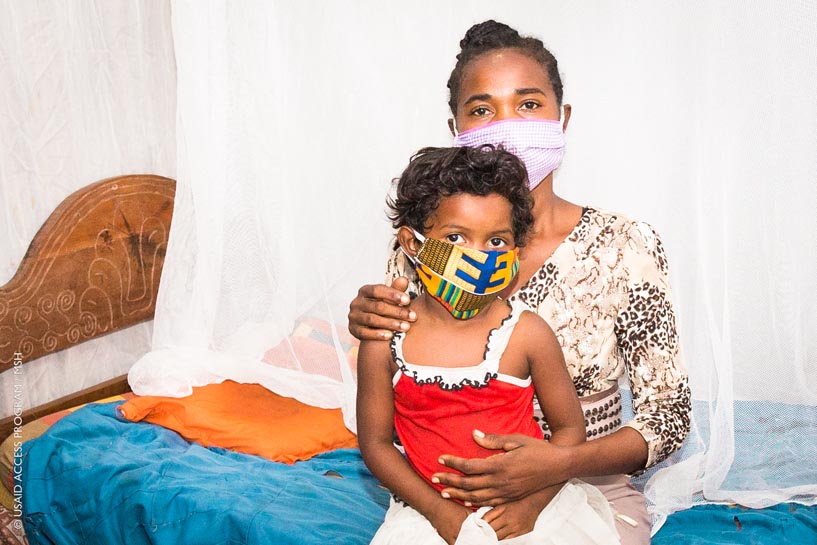
USAID ACCESS strengthens the ability of Madagascar’s public health leaders to effectively lead epidemic response activities, all while building the sustainability and resilience needed to confront and overcome any future disease outbreaks.
The Accessible Continuum of Care and Essential Services Sustained (ACCESS) program is a five-year integrated health project funded by the United States Agency for International Development (USAID) and led by Management Sciences for Health. Through the ACCESS program, the US Government continues its support to the Government of Madagascar in accelerating sustainable health impacts for nearly 16 million Malagasy people — as measured by sustained reductions in maternal and child mortality and morbidity — and strengthening the Ministry of Public Health’s stewardship of the health sector.